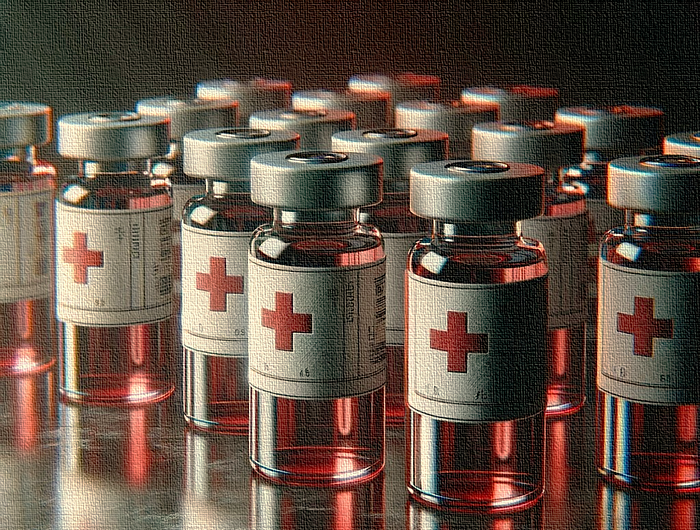|
When Someone Died Suddenly, What Could Be the Cause? Hint: It's Not the Vaccine
A new, rigorous study sheds light on 5 top causes.

When the documentary Died Suddenly was released on November 21, 2022, more than 7 million people viewed it within a day. By January 2023, it had garnered nearly 20 million views.
What was this fascinating documentary all about? Per IMDb's description: "5 billion vaccinated worldwide, and many are dying suddenly. Is this the greatest orchestrated die-off in the history of the world?"
If we see someone young and healthy suddenly drop dead, especially when they're vaccinated, we would be suspicious of the vaccine, provided no other apparent explanations exist. After all, what else could explain such a mysterious death other than the vaccine?
Such an argument is highly convincing at the instinctive level. Our reptilian brain can't help but associate the two. But our prefrontal cortex would take a step back and question whether the two are actually related.
And our prefrontal cortex could use a new study titled "Factors associated with unexplained sudden deaths among adults aged 18–45 years in India — A multicentric matched case–control study," which was published in the reputable Indian Journal of Medical Research.
To my knowledge, this is the first study to not only investigate whether Covid-19 vaccines are linked to sudden deaths among healthy young adults but also pinpoint several risk factors of sudden deaths.
Despite the preconceived bias that Indian research may be inferior, partly due to the country's high rate of fake papers generated from paper mills, this new study actually employed a rigorous methodology.
They collected data on 729 individuals who had died suddenly (cases) and 2,916 healthy individuals (controls) between 18–45 years old across 47 hospitals from 19 Indian states from May to August 2023. Controls were matched to the cases based on age (±5 yr), sex, and residence at a 4:1 ratio.
Sudden death was defined as the "natural, non-traumatic death of an apparently healthy individual," per the International Statistical Classification of Diseases 10th Revision (ICD-10). Those with a known medical condition(s) that may explain the death were excluded. Those who were on long-term medications and who died from physical injury-related causes, poisoning, or drug overdose were also excluded.
These cases and controls were carefully selected and examined. Field investigators checked medical records and even went door to door in the neighborhood to gather information on Covid-19 vaccination status, history of Covid-19, and other details that might be relevant to the death, such as lifestyle factors (e.g., smoking, drinking, drug use, etc.).
After adjusting for the relevant variables, results revealed several factors that significantly influenced the risk of sudden deaths:
- Covid-19 vaccination (two doses) lowered the odds by 0.51-fold.
- Recent (≤48 hours) binge drinking (≥6 alcoholic drinks on a single occasion) increased the odds by 5.29-fold.
- Past Covid-19 hospitalization increased the odds by 3.8-fold.
- Recent (≤48 hours) unaccustomed intense physical activity (with a large increase in heart or breathing rate for at least 10 minutes continuously) increased the odds by 3.7-fold.
- Recent (≤48 hours) use of recreational drugs (e.g., weed, cocaine, heroin, or LSD) increased the odds by 2.9-fold.
- A family history of sudden death increased the odds by 2.5-fold.
"COVID-19 vaccination did not increase the risk of unexplained sudden death among young adults in India," the study authors concluded. "Past COVID-19 hospitalization, family history of sudden death and certain lifestyle behaviors increased the likelihood of unexplained sudden death."
The #1 risk factor of sudden death is, intriguingly, a recent episode of binge drinking alcohol. This isn't entirely unexpected. Prior studies have found that those who engage in binge drinking are at heightened risk of stroke, cardiac arrhythmias, and sudden cardiac death. Why? Consuming large quantities of alcohol can result in QT prolongation (i.e., an abnormal delay in the heart's electrical cycle), which may cause sudden death.
Regarding the #2 risk factor, an episode of severe Covid-19 burdens the body, sometimes for the long term. Cardiovascular adverse events are one of the known complications of long-Covid, with multiple studies finding elevated risks of stroke and heart failure among Covid-19 survivors.
Likewise, for the #3 risk factor, when untrained non-athletes engage in vigorous physical activity, the drastic increase in blood pressure can impose shear stress on blood vessel walls, causing rupture that could result in sudden death. Increased platelet activities after vigorous exercise may also trigger blood clots with potentially fatal consequences.
The use of certain recreational drugs, the #4 risk factor of sudden death, can trigger the release of certain neurotransmitters in high amounts. This can result in overstimulating the autonomic nervous system, which can indirectly affect the heart and cause sudden cardiac death.
A family history of sudden death is the #5 risk factor, which could involve both lifestyle and genetics. Binge drinking may be a habit that runs in the family, for instance. Undiagnosed, underlying heart conditions are usually the cause of sudden death. Some of these conditions are genetically inherited, such as hypertrophic cardiomyopathy (thickened heart muscle walls), long QT syndrome (abnormal heart rhythm), and aneurysms.
In the end, this study from India shares a crucial finding — a sudden death among the young and healthy is usually due to causes unrelated to the Covid-19 vaccine. If anything, the vaccine could protect you instead.
In fact, the incidence of sudden deaths had been rather common even before Covid-19 vaccines were used. I covered this in an old article of mine: What To Think if We See Someone Drop Dead After Vaccination.
December 12, 2023 Update: To address the concerns of a few commenters, this study did not specify which type of Covid-19 vaccine the participants got, which is a major limitation of this study.
In India, Bharat Biotech's inactivated and AstraZeneca's (AZ) DNA Covid-19 vaccines are most commonly used. Moderna's (but not Pfizer's) mRNA vaccine is also approved for use in India. But AZ's DNA vaccines pose greater risks of potentially fatal blood clots than mRNA vaccines. This is why many countries limited the use of AZ's DNA vaccine to high-risk groups as early as 2021. In this sense, if Covid-19 vaccines truly increase the risk of sudden death, we should've seen it in India, at least more likely than not.
If you have made it this far, thank you. Subscribe to my Medium email list here. You can also tip me here if you are feeling generous today, and I will appreciate any financial support I can get.
Named Standford's world top 1% scientists | Independent science writer and researcher | Powerlifter with 3x national records | Medium boost program's nominator




No comments:
Post a Comment